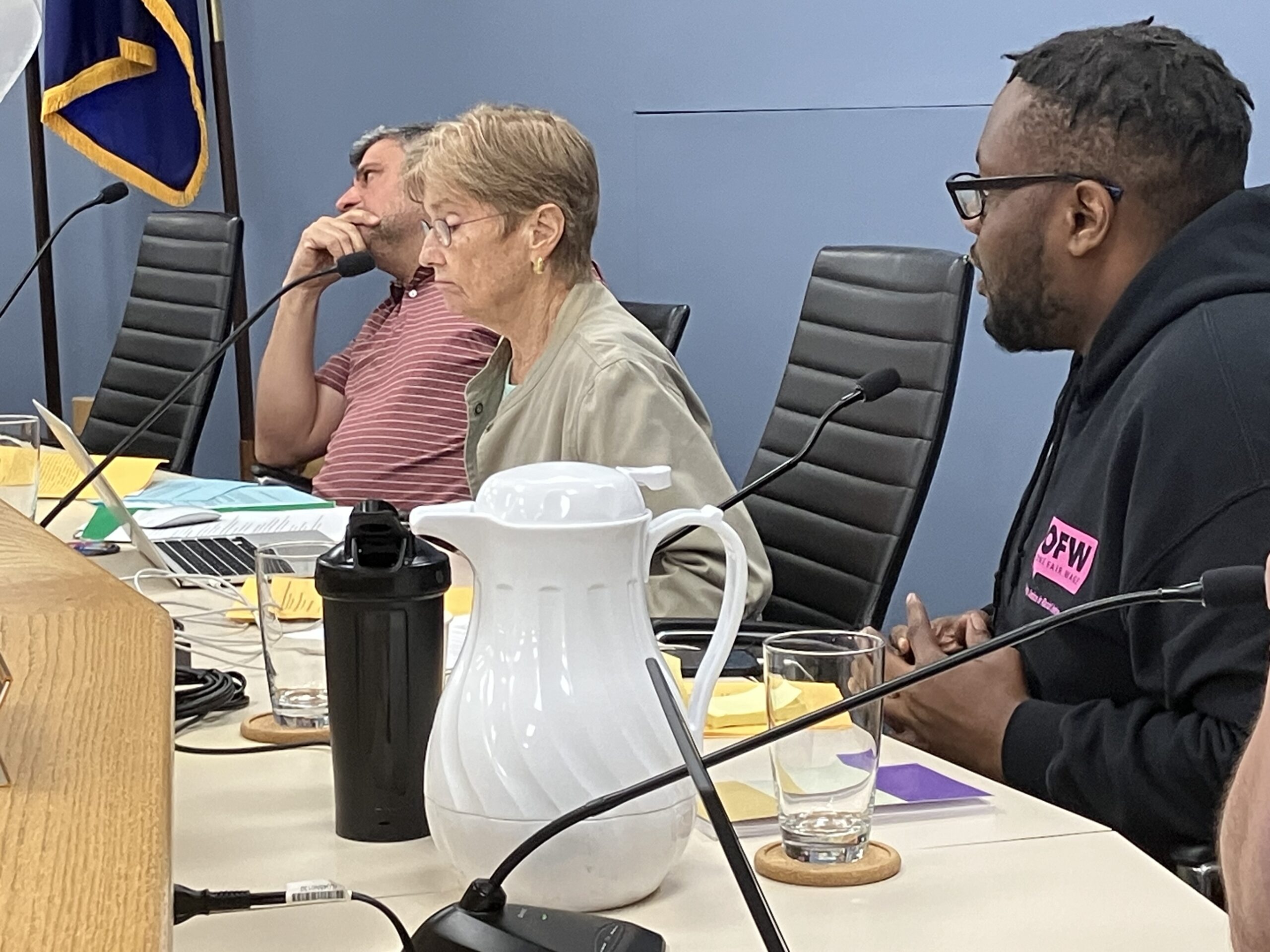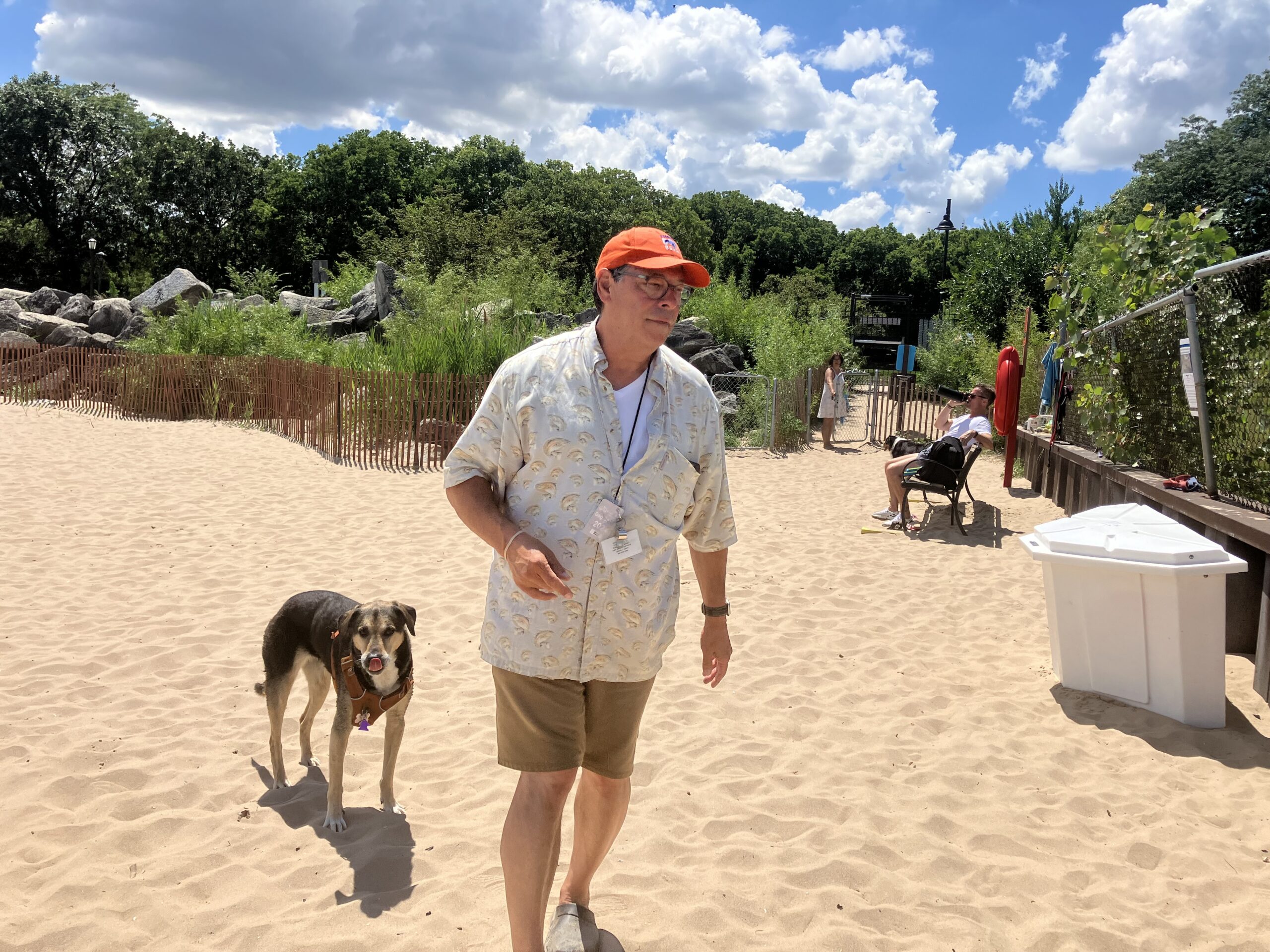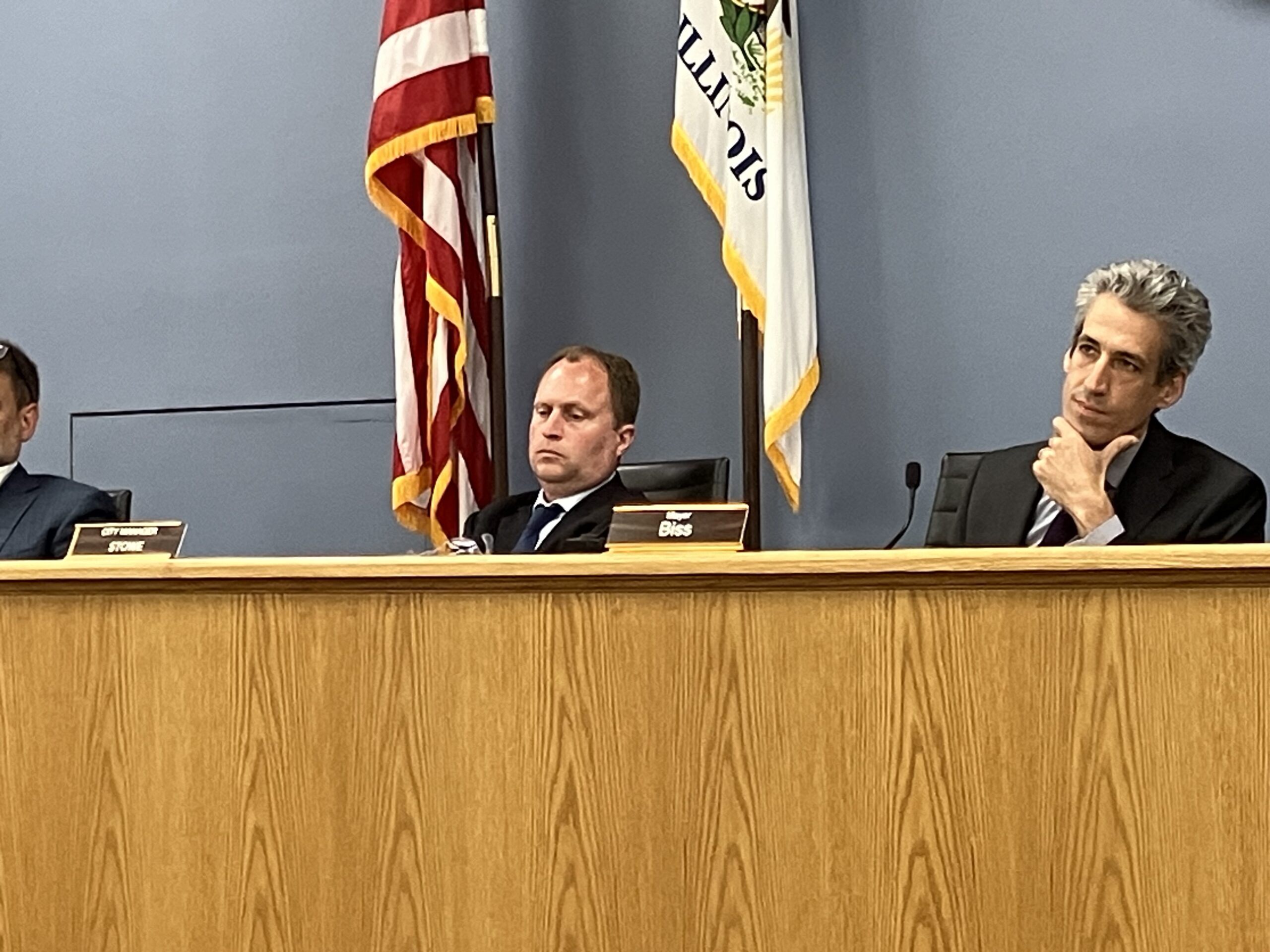Counsel finds neither Reid nor Revelle had a conflict of interest in the matter
By Bob Seidenberg
Evanston’s Special Ethics Counsel has ruled that neither City Council members Eleanor Revelle (7th Ward) nor Devon Reid (8th Ward) violated the city’s ethics code when they voted May 22 to support a request by Connections for the Homeless for a special use permit to operate a homeless shelter for the Margarita Inn, 1566 Oak Ave.
The firm made known its determination on the complaints in an e-mail to officials dated July 17.
Neighbors of the Margarita had filed separate ethics complaints against Revelle and Reid individually in the wake of the May 8 Planning and Development Committee meeting and the May 22 City Council meeting, where Revelle and Reid had joined the majority in a 6-2 vote in support of the Margarita’s request.
The complaints went to the city’s Special Ethics Counsel, Chicago-based government and land use law firm Elrod Friedman, which under revisions to the City’s ethics ordinance approved in 2021, makes the first determination.
In the complaints against Revelle, neighbors maintained she should “have recused herself from voting on the Margarita Inn because she has a long-established personal relationship with Connections for the Homeless – the organization seeking the special use permit for the Margarita Inn.”
The complaints also said that “over the years, Councilwoman Revelle has contributed tens of thousands of dollars to Connections. While these contributions may be laudable, they evidence a very strong personal interest in Connections’ mission, operations, and continued growth. To vote on Connections’ special use request is an outright conflict of interest and, if not an outright conflict, to at least give rise to the appearance of a conflict.”
Elected officials are not employees
The neighbors’ complaint cited section 1-10-4 of the city’s ethics code, which pertains to conflicts of interest and standards of conduct.
City code says that “employees shall perform their duties with impartiality and without prejudice or bias in their service to the residents of the City. No employee shall grant or make available to any individual, including other covered persons any consideration, treatment, advantage or favor beyond that which is available to every other individual.”
But the counsel determined there was no jurisdiction or cause to prosecute Revelle based on the sections of the ethics code cited in their complaints. The opinion pointed out the distinction the city’s ethics code makes between employees and elected and appointed officials.
“An elected official is not an employee,” said the special counsel opinion, putting the sentence in italics for emphasis.
Because Revelle is an elected official, the opinion stated, the section of the ethics code did not apply. The opinion also held that Revelle’s contributions to Connections didn’t constitute a conflict of interest that would have required her to recuse herself.
“The attorney general has stated that a common law conflict may arise whenever official action could result in a personal advantage or disadvantage to the interested official,” the opinion said. “In this case, Councilmember Revelle does not have a direct financial interest in, or any contract with, Connections for the Homeless, and she does not stand to reap a personal benefit or advantage from the granting of the approval.”
The opinion said that though Revelle’s donations showed her support for the mission of Connections for the Homeless “and her concern for the unhoused in general, such concerns and attentions are not the type of ‘interests’ the ethics code, state statute” or common law conflicts of interest rules are intended to protect against.
Neighbors cite aid
In the complaints filed against Reid, neighbors cited $7,500 in monetary assistance to the council member from Connections for the Homeless through the agency’s eviction-prevention program, sent to Reid’s landlord for his benefit
At the May 8 Council meeting, when Connections for the Homeless’ request was introduced, Reid declared that he had received rental assistance from Connections. But he said he did not see that as a conflict of interest and declared his intention to vote on the issue.
“I do not intend for my participation or my vote to be a distraction from what is really important here,” he said at the time. “But I also intend for my vote to stand up for any future council member who may be low-income or in their term becomes low-income and needs rental assistance. That should not disqualify a council member from participating in the system.”
The neighbors’ complaints alleged that Reid’s acceptance of rental assistance was either a conflict of interest or the appearance of a conflict of interest, and therefore Reid should have recused himself.
But the special counsel wrote that Reid did “not have actual conflict of interest because he does not have a direct financial interest in Connections for the Homeless, any contract with Connections for the Homeless, and does not stand to reap a direct personal benefit or advantage from the approval of the special use permit
As for the appearance of conflict of interest, the counsel wrote that “Reid determined that a person in his position … would not believe there to be an appearance of a conflict of interest and … would be able to consider the matter and vote impartially.”
The opinion referred the statement Reid made at the May 8 City Council meeting disclosing the receipt of rental assistance from Connections for the Homeless and his determination that such assistance would not affect his ability to consider the matter.
‘Confluence’ of interests, not conflict
The Special Counsel opinion noted that at the May 8 meeting Reid said it was general knowledge that he got rental assistance and it was “not some special arrangement” between him and the organization.
“I do not believe (it) disqualifies me from being able to vote here,” Reid said at the time, adding that he was “openly supportive of the project well before I was given any assistance.”
Due to that, the opinion said, Reid did not have a conflict of interest or believe there was the appearance of a conflict and he therefore did not have to recuse himself.
Asked about the ruling after Monday night’s Council Rules Committee meeting, Reid, who is in his first term as a council member, said he was undaunted by the criticism.
“The accusations were disheartening but only strengthened my resolve to continue fighting for a more inclusive and prosperous Evanston,” he said.
He repeated an analogy he had made in the face of the complaints, about accepting benefits: “I could not imagine a world where a mother who received WIC [Women, Infants and Children special supplemental] benefits and became a Congressperson wouldn’t be able to vote on the WIC program or a senior who has received Social Security couldn’t vote on changes to the Social Security program. These are the folks that we need on the frontlines in advancing policy because to me, it’s not a conflict of interest, it’s a confluence of interests.”




